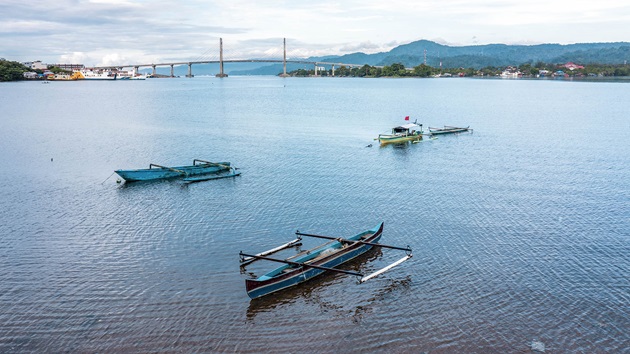Badania naukowe mają fundamentalne znaczenie dla pracy, jaką wykonujemy w MSC. Nasza współpraca naukowo-badawcza pomaga zapewnić, że opracowywany przez nas Standard MSC odzwierciedla najnowszą dostępną wiedzę naukową.
Prowadzone badania
MSC współpracuje z naukowcami i badaczami z całego świata. Poniżej przedstawiamy projekty badawcze, w które jesteśmy obecnie zaangażowani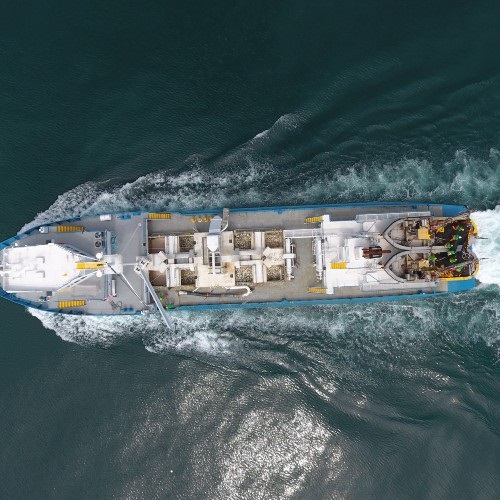
Zarządzanie migrującymi stadami
Zmiany klimatu wywierają ogromny wpływ na stada ryb. MSC analizuje jak zapewnić sprawiedliwy podział kwot połowowych migrujących stad (strona w j. angielskim).
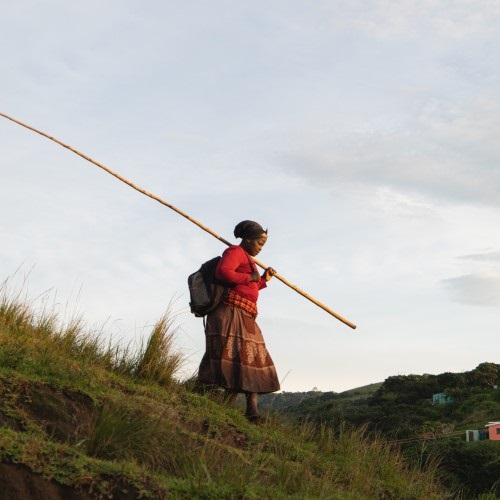
Wpływ społeczno-ekonomiczny
MSC prowadzi analizę społecznych i ekonomicznych efektów działania programu certyfikacji (strona w j. angielskim).
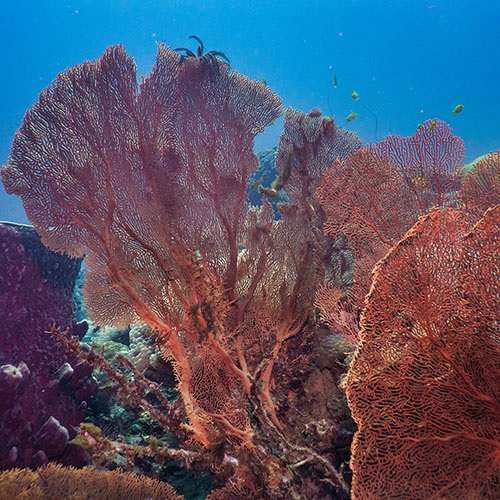
Wpływ na siedliska
Dzięki zaawansowanej technice modelowania MSC Habitat Impact Tools, można przewidzieć wpływ rybołówstwa na dno morskie (strona w j. angielskim).
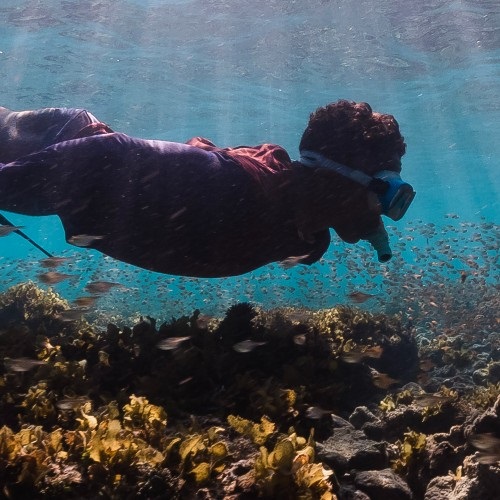
Wsparcie rybołówstw o ograniczonym dostępie do danych
Niektóre rybołówstwa mają trudności ze zebraniem danych wymaganych do oceny. MSC dostarcza narzędzia pomagające rybołówstwom o ograniczonej ilości danych ulepszyć praktyki rybackie (strona w j. angielskim).
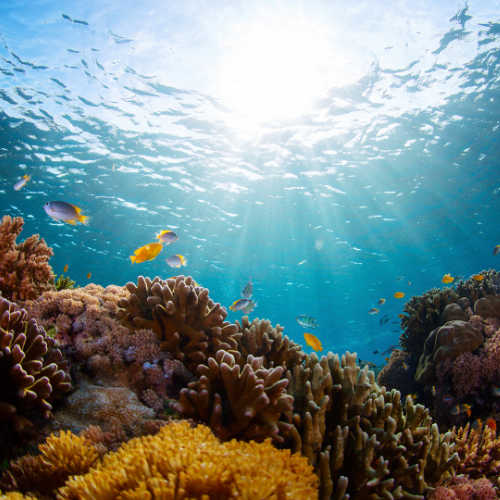
MSC i Cele Zrównoważonego Rozwoju
Dane MSC są wykorzystywane przez ONZ do monitorowania postępów w wyeliminowaniu przełowienia i ochronie bioróżnorodności.
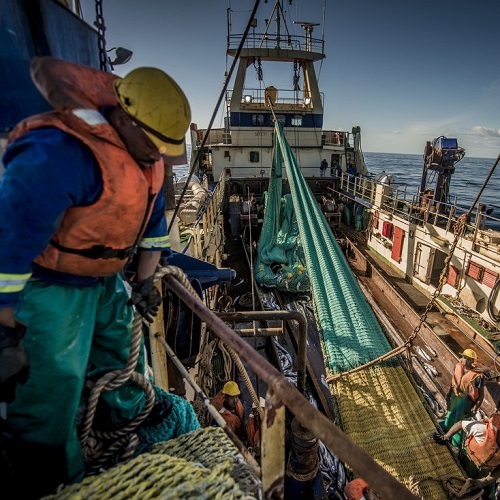
Udoskonalanie rybołówstwa
Rybołówstwa nie przestają ulepszać swoich praktyk po uzyskaniu certyfikatu MSC, ale długofalowo angażują się w zrównoważony rozwój.
Publikacje MSC obejmują artykuły naukowe w recenzowanych czasopismach naukowych oraz raporty specjalistyczne. O ile nie zaznaczono inaczej, współautorami publikacji są pracownicy MSC: publikacje oznaczone * wspierane ze środków MSC; publikacje oznaczone ** zostały zlecone i opłacone przez MSC.
2023 |
| Rasal, J., Melnychuk, M. C., Lejbowicz, A., Montero-Castano, C., Ferber, S. & Longo, C. (2023). Drivers of success, speed and performance in fisheries moving towards Marine Stewardship Council certification. Fish and Fisheries. |
| Jardim, E., & Currey, R. J. C. (2023). The MSC Fisheries Standard Review policy development process. Marine Policy. |
| McLennan, S., Polidoro, B., Huntington, T., Cappell, R., Restrepo, V., Mundnich, K., & Jardim, E. (2023). The new Marine Stewardship Council requirements to improve ghost gear management: Insights from the policy development process. Marine Policy. |
| Moranta, J., Florido-del-Corral, D., López-López, L., Gómez, S., Agujetas, J., Albo-Puigserver, M., Brent, Z. W., Bathily, L., Calvário, R., Cavallé, M., Coll, M., Crane, A., de Oliveira, E. C. L., Ertör, I., Herrera-Racionero, P., Leitão, F., Miret-Pastor, L., Patraca, B., Ortega, M., … Villasante, S. (2023). Sowing potential transformative changes in the fishing and agrifood systems – Conference report. Marine Policy. |
| Vogel, J. M., Longo, C., Spijkers, J., Palacios-Abrantes, J., Mason, J., Wabnitz, C. C. C., Cheung, W., Sumaila, U. R., Munro, G., Glaser, S., Bell, J., Tian, Y., Shackell, N. L., Selig, E. R., le Billon, P., Watson, J. R., Hendrix, C., Pinsky, M. L., van Putten, I., … Fujita, R. (2023). Drivers of conflict and resilience in shifting transboundary fisheries. Marine Policy. |
| Palacios-Abrantes, J., Crosson, S., Dumas, C., Fujita, R., Levine, A., Longo, C., & Jensen, O. P. (2023). Quantifying fish range shifts across poorly defined management boundaries. PloS one. |
| Carruthers, T. R., Huynh, Q. C., Hordyk, A. R., Newman, D., Smith, A. D. M., Sainsbury, K. J., Stokes, K., Morison, A., Agnew, D., Parma, A., Sobrino, I., & Longo, C. (2023). Method evaluation and risk assessment: A framework for evaluating management strategies for data-limited fisheries. Fish and Fisheries. |
| Ainsworth, G. B., Pita, P., Garcia Rodrigues, J., Pita, C., Roumbedakis, K., Fonseca, T., Castelo, D., Longo, C., Power, A. M., Pierce, G. J., & Villasante, S. (2023). Disentangling global market drivers for cephalopods to foster transformations towards sustainable seafood systems. People and Nature. |
| Hiddink, J. G., Evans, L., Gilmour, F., Lourenço, G., McLennan, S., Quinn, E., & Shepperson, J. (2023). The effect of habitat and fishing-effort data resolution on the outcome of seabed status assessment in bottom trawl fisheries. Fisheries Research. |
| Ainsworth, G. B., Pita, P., Pita, C., Roumbedakis, K., Pierce, G. J., Longo, C., Verutes, G., Fonseca, T., Castelo, D., Montero-Castaño, C., Valeiras, J., Rocha, F., García-de-la-Fuente, L., Acuña, J. L., del Pino Fernández Rueda, M., Fabregat, A. G., Martín-Aristín, A., & Villasante, S. (2023). Identifying sustainability priorities among value chain actors in artisanal common octopus fisheries. Reviews in Fish Biology and Fisheries. |
| Good, S. D., Gummery, M., McLennan, S., Dewar, K., Votier, S. C., & Phillips, R. A. (2023). Evaluating the appropriateness of risk-based approaches to assess the sustainability of fishery impacts on seabirds. Endangered Species Research. |
| Oloruntuyi, O., Barendse, J., Marriott, M., Gordon, A. K., & Montero-Castaño, C. (2023). Pathway to sustainability: the Marine Stewardship Council certification standard as an improvement framework for African fisheries. Frontiers in Marine Science. |
| Lees, S., Longo, C., Melnychuk, M. C., Burns, P., & Polidoro, B. (2023). Corrected numbers and assumptions for understanding MSC certified fishery withdrawals: Commentary on Pierucci et al. Marine Policy. |
2022 |
| *Medellín–Ortiz, A., Montaño–Moctezuma, G., Álvarez–Flores, C., Santamaría-del-Ángel, E., García–Nava, H., Beas–Luna, R., & Cavanaugh, K. (2022). Understanding the impact of environmental variability and fisheries on the red sea urchin population in Baja California. Frontiers in Marine Science. |
| *Merkel, F. R., Post, S., Frederiksen, M., Bak-Jensen, Z., Nielsen, J., & Hedeholm, R. B. (2022). Bycatch in the West Greenland lumpfish fishery, with particular focus on the common eider population. Marine Ecology Progress Series. |
| Melnychuk, M. C., Veneziano, A., Lees, S., Rasal, J., Koerner, L. M., Hair, P., Costalago, D., Hively, D., Jardim, E., & Longo, C. (2022). Wild-caught fish populations targeted by MSC-certified fisheries have higher relative abundance than non-MSC populations. Frontiers in Marine Science. |
| Tindall, C., Oloruntuyi, O., Lees, S., Longo, C. S., Schley, D., & Currey, R. J. C. (2022). Illuminating the mechanisms to mitigate forced and child labour risks within Marine Stewardship Council certified fisheries. Marine Policy. |
| Goethel, D. R., Omori, K. L., Punt, A. E., Lynch, P. D., Berger, A. M., de Moor, C. L., Plagányi, É. E., Cope, J. M., Dowling, N. A., McGarvey, R., Preece, A. L., Thorson, J. T., Chaloupka, M., Gaichas, S., Gilman, E., Hesp, S. A., Longo, C., Yao, N., & Methot, R. D. (2022). Oceans of plenty? Challenges, advancements, and future directions for the provision of evidence-based fisheries management advice. Reviews in Fish Biology and Fisheries. |
| Bennington, S., Guerra, M., Johnston, D., Currey, R., Brough, T., Corne, C., Johnson, D., Henderson, S., Slooten, E., Dawson, S., & Rayment, W. (2023). Decadal stability in the distribution of bottlenose dolphins in Dusky Sound/Tamatea, New Zealand. New Zealand Journal of Marine and Freshwater Research. |
2021 |
| **Anderson, C. M. Himes-Cornell, A., Pita, Cristina, Arton, A., Favret, M. Averill, D., Stohs, S. Longo, C. S. (2021) Social and economic outcomes of fisheries certification: Characterizing pathways of change in canned fish markets. Frontiers in Marine Science. |
| *Oyanedel, R., Gelcich, S., Mathieu, E., Milner-Gulland, E., J. (2021) A dynamic simulation model to support reduction in illegal trade within legal wildlife markets. Conservation Biology. |
| Cusa, M., St John Glew, K., Trueman, C., Mariani, S., Buckley, L., Neat F., Longo, C. (2021) A future for seafood point-of-origin testing using DNA and stable isotope signatures. Reviews in Fish Biology and Fisheries. |
| *Widyatmoko, C. A., Hardesty, B. D., Wilcox, C. (2021) Detecting anchored fish aggregating devices (AFADs) and estimating use patterns from vessel tracking data in small-scale fisheries. Scientific Reports, 11. |
| Longo, C. S., Buckley, L., Good, S. D., Gorham, T. M., Koerner, L., Lees, S., Liow, S. Y., Oloruntyi, O., Schley, D., Rice, J., Currey, R. J. C. (2021) A Perspective on the Role of Eco-Certification in Eliminating Illegal, Unreported and Unregulated Fishing. Frontiers in Ecology and Evolution. |
| Robinson, L. M., van Putten, I., Cavve, B. S., Longo, C., Watson, M., Bellchambers, L., Fisher, E., Boschetti, F. (2021) Understanding societal approval of the fishing industry and the influence of third-party sustainability certification. Fish and Fisheries. |
*Oyanedel, R., Gelcich, S., Milner-Gulland, E. J (2021) A framework for assessing and intervening in markets driving unsustainable wildlife use. Science of The Total Environment, 792. |
| Nelms, S. E., Alfaro-Shigueto, J. Arnould, J. P. Y., Avila, I. C., Nash, S. B., Campbell, E., Carter, M. I. D., Collins, T., Currey, R. J. C., Domit, C., Franco-Trecu, V., Fuentes, M. M. P. B., Gilman, E., Harcourt, R. G., Hines, E. M., Hoelzel, A. R., Hooker, S. K., Johnston, D. W., Kelkar, N., Kiszka, J. J. Laidre, K. L., Mangel, J. C., Marsh, H., Maxwell, S. M., Onoufiou, A. B., Palacios, D. M., Pierce, G. J., Ponnampalam, L. S., Porter, L. J., Russel, D. J. F., Stockin, K. A., Sutaria, D., Wambiji, N., Weir, C. R., Wilson, B., Godley, B. J. (2021). Marine mammal conservation: over the horizon. Endangered Species Research, 44:290-325. |
| Jardin, E., Azevedo, M., Brodziak, J., Brooks, E. N., Johnson, K. F., Klibansky, N., Millar, C. P., Minto, C. Mosqueria, L., Mash, R. D. M., Vasilakopoulos, P. Wells, B. K. (2021). Operationalizing ensemble models for scientific advice to fisheries management. ICES Journal of Marine Science. |
2020 |
| Arton, A., Leiman, A., Petrokofsky, G., Toonen, H. and Longo, C.S., 2020. What do we know about the impacts of the Marine Stewardship Council seafood ecolabelling program? A systematic map. Environmental Evidence, 9, pp.1-20 |
**Brautigam, A. 2020. Best Practice in the Prevention of Shark Finning. Pp. 1-25 |
Free, C., Jensen, O., Anderson, S.C., Gutierrez, N.L., Kleisner, K.M., Longo, C., Minto, C., Osio, G.C., Walsh, J.C. 2020. Blood from a stone: Performance of catch-only methods in estimating stock biomass status. Fisheries Research, 223: 105452. |
Good, S.D., Baker, G.B., Gummery, M., Votier, S.C. and Phillips, R.A., 2020. National Plans of Action (NPOAs) for reducing seabird bycatch: Developing best practice for assessing and managing fisheries impacts. Biological Conservation, 247, p.108592. |
*Haas, B., 2020. Tuna management in action: assessing the contribution of the WCPFC to the SDGs. Australian Journal of Maritime & Ocean Affairs, 12(1), pp.42-47. |
Handley, J.M., Pearmain, E.J., Oppel, S., Carneiro, A.P., Hazin, C., Phillips, R.A., Ratcliffe, N., Staniland, I.J., Clay, T.A., Hall, J. and Scheffer, A., 2020. Evaluating the effectiveness of a large multi‐use MPA in protecting Key Biodiversity Areas for marine predators. Diversity and Distributions, 26(6), pp.715-729. |
*Méndez-Medina, C., Schmook, B., Basurto, X., Fulton, S. and Espinoza-Tenorio, A., 2020. Achieving coordination of decentralized fisheries governance through collaborative arrangements: A case study of the Sian Ka'an Biosphere Reserve in Mexico. Marine Policy, 117, p.103939. |
*Oyanedel, R., Gelcich, S. and Milner‐Gulland, E.J., 2020. Motivations for (non‐) compliance with conservation rules by small‐scale resource users. Conservation Letters, p.e12725. |
*Oyanedel, R., Gelcich, S. and Milner‐Gulland, E.J., 2020. A synthesis of (non‐) compliance theories with applications to small‐scale fisheries research and practice. Fish and Fisheries. |
van Putten, I., Longo, C., Arton, A., Watson, M., Anderson, C.M., Himes-Cornell, A., Obregón, C., Robinson, L. and van Steveninck, T., 2020. Shifting focus: The impacts of sustainable seafood certification. PloS one, 15(5), p.e0233237. |
2019 |
Barendse, J., Roel, A., Longo, C., Andriessen, L., Webster, L.M., Ogden, R. and Neat, F., 2019. DNA barcoding validates species labelling of certified seafood. Current Biology, 29(6), pp.R198-R199. |
Erickson, L.E., Snow, S., Uddin, M. and Savoie, G.M., 2019. The need for a code of professional ethics for marine conservation communicators. Frontiers in Marine Science, 6, p.304. |
*Kakai, T.M., 2019. Assessing the effectiveness of LED lights for the reduction of sea turtle bycatch in an artisanal gillnet fishery-a case study from the north coast of Kenya. Western Indian Ocean Journal of Marine Science, 18(2), pp.37-44. |
2018 |
Barendse, J., Basson, J., Petersen, S.L. and Sink, K.J., 2018. The sustainable seafood movement viewed as a maturing social-ecological issue using a South African case-study. Ocean & Coastal Management, 151, pp.178-192. |
*Christie, L., 2018. Understanding how sea ice influences Arctic deep-water food webs across a latitudinal gradient. Arctic, 71(4), pp.467-472. |
Jarre, A., Shannon, L.J., Cooper, R., Duggan, G.L., Gammage, L.C., Lockerbie, E.M., McGregor, E.S., Ragaller, S.M., Visser, N., Ward, C. and Watermeyer, K.E., 2018. Untangling a Gordian knot that must not be cut: Social-ecological systems research for management of southern Benguela fisheries. Journal of Marine Systems, 188, pp.149-159. |
Komives, K., 2019. Conservation impacts of voluntary sustainability standards: how has our understanding changed since the 2012 publication of “Toward sustainability: the roles and limitations of certification? Washington, DC; 2018. |
*Mullins, R.B., McKeown, N.J., Sauer, W.H. and Shaw, P.W., 2018. Genomic analysis reveals multiple mismatches between biological and management units in yellowfin tuna (Thunnus albacares). ICES Journal of Marine Science, 75(6), pp.2145-2152. |
2017 |
| Longo, C.S., Frazier, M., Doney, S.C., Rheuban, J.E., Humberstone, J.M. and Halpern, B.S., 2017. Using the ocean health index to identify opportunities and challenges to improving southern ocean ecosystem health. Frontiers in Marine Science, 4, p.20. |
2016 |
Anderson, S.C., Cooper, A.B., Jensen, O.P., Minto, C., Thorson, J.T., Walsh, J.C., Afflerbach, J., Dickey‐Collas, M., Kleisner, K.M., Longo, C. and Osio, G.C., 2017. Improving estimates of population status and trend with superensemble models. Fish and Fisheries, 18(4), pp.732-741. |
Brown, S., Agnew, D.J. and Martin, W., 2016. On the road to fisheries certification: The value of the Objections Procedure in achieving the MSC sustainability standard. Fisheries Research, 182, pp.136-148. |
Fogarty, M.J., Rosenberg, A.A., Cooper, A.B., Dickey-Collas, M., Fulton, E.A., Gutiérrez, N.L., Hyde, K.J., Kleisner, K.M., Kristiansen, T., Longo, C. and Minte-Vera, C.V., 2016. Fishery production potential of large marine ecosystems: A prototype analysis. Environ Dev, 17, pp.211-219. |
*Gonzáles-Andrés, C., FM Lopes, P., Cortés, J., Sánchez-Lizaso, J.L. and Pennino, M.G., 2016. Abundance and distribution patterns of Thunnus albacares in Isla del Coco National Park through predictive habitat suitability models. Plos one, 11(12), p.e0168212. |
2015 |
Barendse, J. and Francis, J., 2015. Towards a standard nomenclature for seafood species to promote more sustainable seafood trade in South Africa. Marine policy, 53, pp.180-187. |
Blackmore, E., Norbury, H., Mohammed, E.Y., Cavicchi, S.B. and Wakeford, R., 2015. WHAT'S THE CATCH?: Lessons from and Prospects for Marine Stewardship Council Certification in Developing Countries. International Institute for Environment and Development. |
Pérez-Ramírez, M., Castrejón, M., Gutiérrez, N.L. and Defeo, O., 2016. The Marine Stewardship Council certification in Latin America and the Caribbean: A review of experiences, potentials and pitfalls. Fisheries Research, 182, pp.50-58. |
2014 |
Agnew, D.J., Gutiérrez, N.L., Stern-Pirlot, A. and Hoggarth, D.D., 2014. The MSC experience: developing an operational certification standard and a market incentive to improve fishery sustainability. ICES Journal of Marine Science, 71(2), pp.216-225. |
2013 |
Agnew, D.J., Gutiérrez, N.L., Stern-Pirlot, A., Smith, A.D., Zimmermann, C. and Sainsbury, K., 2013. Rebuttal to Froese and Proelss “Evaluation and legal assessment of certified seafood”. Marine Policy, 38, pp.551-553. |
Gutierrez, N.L. and Agnew, D.J., 2013. MSC objection process improves fishery certification assessments: a comment to Christian et al.(2013). Biological Conservation, (165), pp.212-213. |
2012 |
Gutierrez, N.L., Valencia, S.R., Branch, T.A., Agnew, D.J., Baum, J.K., Bianchi, P.L., Cornejo-Donoso, J., Costello, C., Defeo, O., Essington, T.E. and Hilborn, R., 2012. Eco-label conveys reliable information on fish stock health to seafood consumers. PloS one, 7(8), p.e43765. |
Martin, S.M., Cambridge, T.A., Grieve, C., Nimmo, F.M. and Agnew, D.J., 2012. An evaluation of environmental changes within fisheries involved in the Marine Stewardship Council certification scheme. Reviews in Fisheries Science, 20(2), pp.61-69. |
2006-2010 |
Agnew, D., Grieve, C., Orr, P., Parkes, G. and Barker, N., 2006. Environmental benefits resulting from certification against MSC’s Principles and Criteria for Sustainable Fishing. MRAG UK Ltd. and Marine Stewardship Council, London. |
Agnew, D., 2008. Case study 1: toothfish—an MSC certified fishery. Seafood Ecolabelling, Principles and Practice. PP. 247-258 |
Von Der Heyden, S., Barendse, J., Seebregts, A.J. and Matthee, C.A., 2010. Misleading the masses: detection of mislabelled and substituted frozen fish products in South Africa. ICES Journal of Marine Science, 67(1), pp.176-185. |
Howes, R., 2008. The marine stewardship council programme. Seafood ecolabelling: Principles and practice, pp.81-105. |
Stan światowych rybołówstw: Sześć wniosków
Dowiedz się więcej
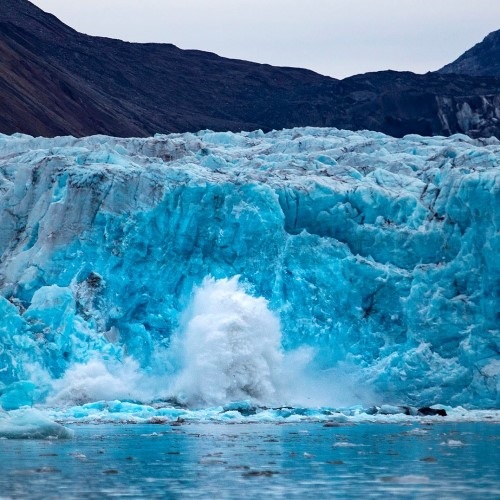
Zmiana klimatu a rybołówstwo
Zmiany klimatyczne wywierają ogromny wpływ na oceany i ich mieszkańców. Ich skutkiem jest między innymi przemieszczanie się stad ryb oraz ich pożywienia.
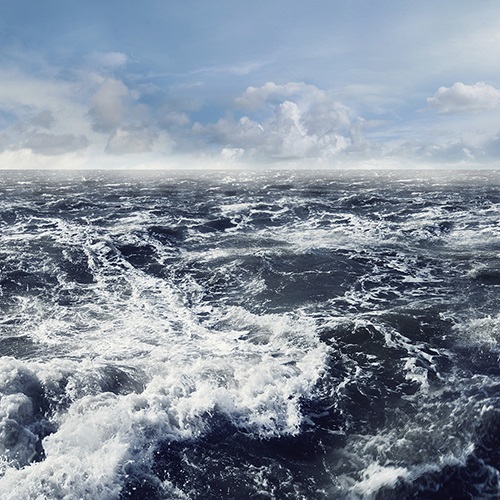
Zagrożone morza i oceany
Morza i oceany zajmują 71% powierzchni naszej planety i pełnią kluczową rolę dla życia na Ziemi. Jednak przełowienie i zmiany klimatyczne stanowią poważne wyzwanie dla prawidłowego funkcjonowania ekosystemów morskich.
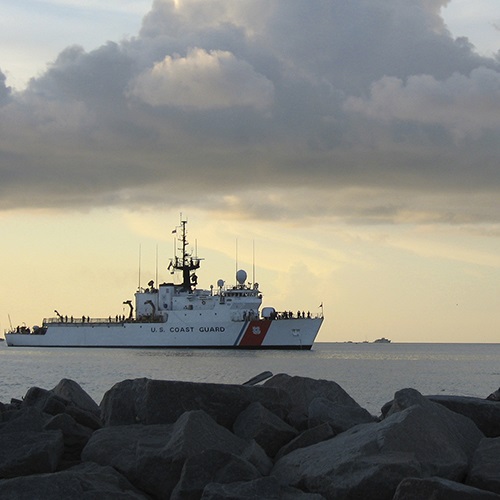
Nadmierna eksploatacja łowisk, nielegalne i destrukcyjne połowy
Powstaliśmy, aby zachować dziką naturę oceanów. Walczymy z problemem nieodpowiedzialnego rybołówstwa, mającego destrukcyjny wpływ na środowisko.


